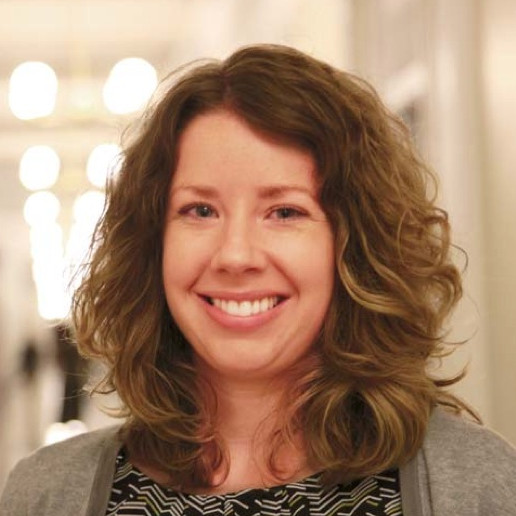From Poetry to Politics
Open gallery

When Barack Obama made his first presidential visit to Israel this spring, there was much talk of what his trip would mean for the stalled Israeli-Palestinian peace process. “I am hopeful,” the president told an audience of mostly college-age Israelis, “that we can draw upon what’s best in ourselves to win the battles for peace in the wake of so much war.” The crowd rose to a standing ovation.
For Stephanie Beechem BA ’08, it was “an incredibly powerful moment.” As a researcher in the White House Office of Communications, she had worked with Obama’s speechwriters and policy staff to help fact-check the president’s remarks. “I feel proud to have been a part of it, even in a small way,” she says.
Beechem never expected to find herself watching the president deliver an address she had helped review. As a Lewis & Clark student, she was a pure poetry-and-paintings type, majoring in English and taking classes in art history. Today, she’s traded art and literature for the decidedly less sublime world of politics, gathering information for Obama communications staffers so they can comment to journalists, unveil new initiatives, and brief White House Press Secretary Jay Carney. Even she seems slightly surprised.
“It has been an interesting ride,” she says.
Coming to Lewis & Clark from Eugene, Oregon, the always literary-minded Beechem had little doubt she would choose English as her major. She immersed herself in words during her time on Palatine Hill, studying contemporary American literature with John Callahan, Morgan S. Odell Professor of Humanities, and exploring the Romantic poets with Kurt Fosso, associate professor of English. She also wrote for—and ultimately edited—the Pioneer Log student newspaper.
After graduating, Beechem continued studying poetry at the University of Washington, her sights set on a professorship. But as she completed her master’s degree, she came to feel academia wasn’t fast-paced enough for her.
“On a whim” in 2009, Beechem took a communications internship in the City of Seattle’s Office of Economic Development—and thus, she says, got the politics “bug.” After working for the city for more than a year, she applied for another communications internship— at the White House.
“I never thought I would get it,” she says. “When I did, I wasn’t sure I wanted to pursue a career in national politics. But I was proud of the president and excited about what he could accomplish in the rest of his presidency, so I accepted it.”
Beechem’s internship soon turned into a job, which she has now held for more than two years. The White House, she says, can be a challenging place to work—but also a rewarding one.
“You might have 10 different things you need to address on any given day, and you might not know any of them until you arrive at the office in the morning,” she says. “But when you get to see big things get done, it’s really remarkable.”
Beechem says she draws on her Lewis & Clark education every day.
“The great thing about being at a liberal arts college is that regardless of what you’re studying—literature, art, poli sci, or something else—you’re learning to do the same things. You’re being taught to synthesize a bunch of information and write about it cogently,” she says. “That’s going to benefit you regardless of what direction you go in.”
—by Jonathan Frochtzwajg BA ’09
More L&C Magazine Stories
Lewis & Clark Magazine is located in McAfee on the Undergraduate Campus.
MSC: 19
email magazine@lclark.edu
voice 503-768-7970
fax 503-768-7969
The L&C Magazine staff welcomes letters and emails from readers about topics covered in the magazine. Correspondence must include your name and location and may be edited.
Lewis & Clark Magazine
Lewis & Clark
615 S. Palatine Hill Road MSC 19
Portland OR 97219

